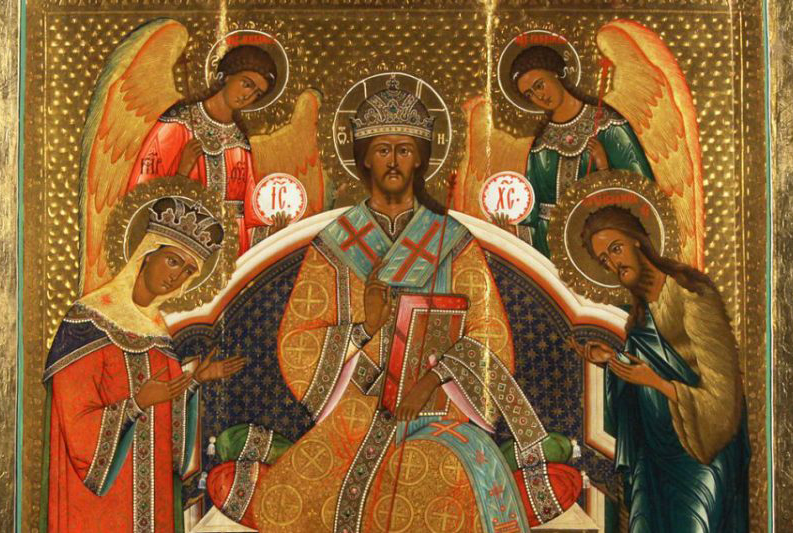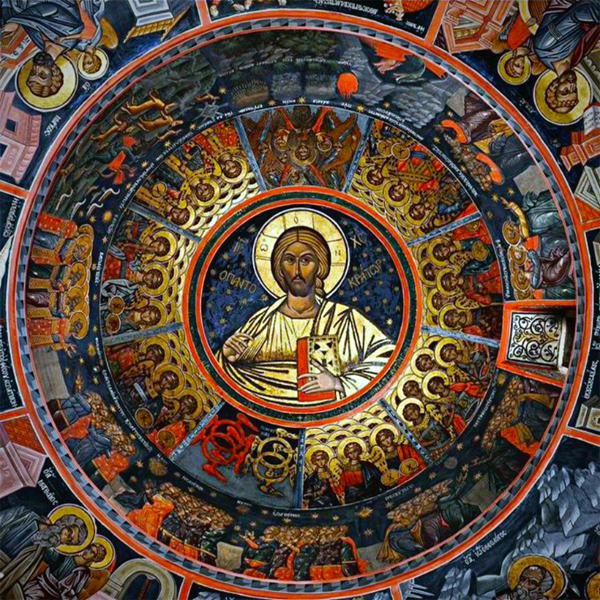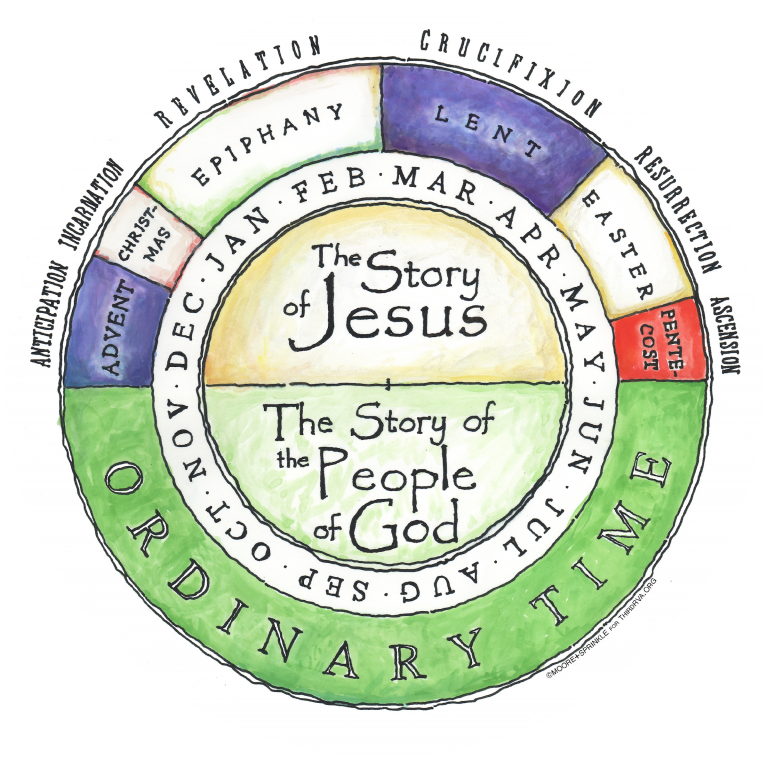They asked each other, “Were not our hearts burning within us while he talked with us on the road and opened the Scriptures to us?” (Luke 24:32)
In Luke 24, Jesus does not speak about the Scriptures merely as bits and pieces, some of which are about him, with the rest being about other things, so that we must decide which ones concern Christ and which ones do not.
In verse 32, Christ “opened” (Greek, dianoigo) the Scriptures to the Emmaus disciples. Why did he “open” them? It was because they were closed — cryptic. But of course, Jesus was not carrying around the Old Testament scrolls, which he then literally unrolled before them. Yet the word for “opened” does mean to open, and not just a little, but thoroughly. Christ opened the Scriptures to the Emmaus disciples because they had been closed. The disciples did not understand what the Scriptures have always been about because they had been veiled to them, though they had not realized it. But now Christ was opening the Scriptures thoroughly to them, unveiling them to reveal that they are about him — not just in part, but the whole of them.
In verse 45, Jesus is with the Eleven disciples in Jerusalem. “Then he opened their minds so they could understand the Scriptures.” Here, it is their nous, their understanding that he “opened” (dianoigo, to open thoroughly), that they might understand the Scriptures. Both things need to happen: The Scriptures must be opened thoroughly to us, and our minds must be opened thoroughly to understand the Scriptures. It is the Lord Jesus, through the Holy Spirit, who must both the Scriptures and our understanding.
Jesus did not teach them, “Just read it literally.” He did not advise them to employ the grammatical-historical method of interpretation. Rather, he taught them that the Law, the Prophets and the Psalms are about him. In speaking of these three sections together like that, Jesus was referring to the whole of the Scriptures, indicating their prophetic unity, that they are all about the same thing, Jesus, and not about a diversity of other things.
In John 5, Jesus tells the Jewish leaders, “You study the Scriptures diligently because you think that in them you have eternal life. These are the very Scriptures that testify about me” (v. 39). Then a few verses later, “If you believed Moses, you would believe me, for he wrote about me. But since you do not believe what he wrote, how are you going to believe what I say?” (vv. 46-47). There is no parsing out here that only some of the things Moses wrote concern Jesus while other portions do not. What Moses wrote is a prophetic unity, not a compilation on various topics, and its unified meaning is Christ. “Moses wrote about me.” Not, “Scattered among Moses’ writings are some things about me.” What Moses wrote was thoroughly about Christ.
In the book of Hebrews, the author quotes Psalm 40:7 and understands that it is about Jesus. “Then I said, ‘Behold, I have come — in the volume of the book it is written of me — to do your will, O God.’” (quoted in Hebrews 10:7,
NKJV). The “book” here is the scroll of the Law, that is, the Torah. The phrase “volume of the book” does not mean that only some of it, bits and pieces here and there, are about Christ, but that the entire scroll has to do with Lord Jesus.
Christ and the gospel are the interpretive key of the Old Testament Scriptures. All of them are about Christ, but we will not find him there by literal interpretation, nor did he ever give us literalism as an interpretive principle. As we go on to consider how the apostles and New Testament authors treated the Old Testament Scriptures, we quickly discover that they did not read them literally but, following what Jesus showed the disciples, figuratively and spiritually.
For example, when Paul speaks of Sarah and Hagar, in Galatians 4:21-31, he does not offer a literal interpretation, but says, “These things may be treated as an allegory” (v. 24). Likewise, when Paul speaks of the children of Israel crossing the wilderness, in 1 Corinthians 10:1-4, it is not a literal interpretation he gives us but a spiritual one.
For I do not want you to be ignorant of the fact, brothers and sisters, that our ancestors were all under the cloud and that they all passed through the sea. They were all baptized into Moses in the cloud and in the sea. They all ate the same spiritual food and drank the same spiritual drink; for they drank from the spiritual rock that accompanied them, and that rock was Christ.
The crossing of the Rea Sea, and the divine cloud that covered them, he calls “baptism.” It is baptism into Moses, but by it, Paul see reference to baptism in Christ. Likewise, when Paul speaks of the Rock that accompanied them in the wilderness, he understands that to be about Christ. He speaks of the Manna they ate and the water they drank from the Rock as spiritual food and spiritual drink, and by it, Paul means to show us Holy Communion, in which Lord Jesus is our food and drink. Christ is the meaning of those Scriptures.
So, Paul speaks of these events from the Torah very differently from what a literal interpretation of them would yield. By the literal method, we would never see that the crossing of the Red Sea, and the cloud that accompanied them, is baptism into Christ. Or that the Manna that came down from heaven is Christ, our spiritual food. Or that the Rock that followed them in the wilderness is Christ, our spiritual drink.
Paul understood very well what Christ taught both the disciples and the Jewish leaders, that what Moses wrote is about Christ. Paul says, “These things occurred as examples.” The word for “example” here is typos. Paul expressly identifies them as types, and that what stands behind them is our Lord Jesus Christ.
It was not only the New Testament authors who treated all the Scriptures this way, but so did the early Church Fathers. St. Irenaeus of Lyons, for example, wrote Demonstration of the Apostolic Preaching, in which he shows how the Apostles and the Fathers preached Christ. The remarkable thing about it is that it shows how the the early preaching about Christ was not drawn from the New Testament Gospels or epistles but from the Old Testament Scriptures, thoroughly and throughout — they did not arrive at this by literal interpretation. Another example is St. Gregory of Nyssa, in his Life of Moses. He goes through the Moses narratives and shows, in considerable detail, that they are about Christ, the gospel of Christ and the body of Christ.
But here is a counter-example: There was one early figure in the Church who interpreted the Old Testament Scriptures literally, and that was Marcion. What Marcion saw by interpreting the Old Testament literally was a portrayal of God that is quite contradictory to the revelation of God given to us in Jesus Christ. What he saw by literal interpretation was a petty, hateful deity not worthy of our worship — and indeed, such a deity found by such literal interpretations is a moral monster, hateful and petty, and not at all worthy of our worship. So, Marcion pitched out the Old Testament Scriptures altogether.
But where Marcion dismissed them, the early Church Fathers did not. For they understood something very important about them that Marcion did not, that Christ is the meaning of all the Scriptures.


























